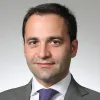Excerpts of Kalin Anev Janse's interview with JiJi (Japan)
Published by JiJi (Japan), 8 June 2017
Interviewer: Nobu Sunaga
JiJi: Could you tell me whether the ESM could issue a yen-denominated bond?
Kalin Anev Janse: We made quite some progress in non-euro denominated issuances. Until today, we have only issued in euro, but last week we received the final approval from our Board of Directors to issue in other currencies than euro. We will start with a U.S. dollar programme and we aim to issue a dollar bond in the fourth quarter of this year.
That will be our first non-euro denominated issuance. Now the approval from the board is for any currency outside the euro, so we have approval to go for other currencies. But we don’t have a concrete plan beyond the U.S. dollar. That doesn’t mean that in a few years’ time we cannot issue in yen. We legally are ready to issue in any currency, so including the yen.
What will the next currency be?
It depends on the appetite from investors. When there is a lot of interest in yen there could the possibility (of issuing a yen-denominated bond) at a later stage.
For now, we will focus on dollars.
What would the volume be?
For the U.S. dollar we want to have a strategic and regular presence in the market with at minimum one or two deals per year. Typically, we would look at one to three billion dollars in size, focusing more on standard maturities of this market.
Up to one year?
No, it’s more between 2 to 5 years. It will not be bills, but bonds. In the end, we would like to develop a U.S. dollar curve, and to be in the market regularly.
Do you feel there is much interest from Japanese investors, outside of the government?
Yes, we also have other investors. We are on a roadshow in Japan this week, and we spent two days meeting with several investors. And we’ve actually quite a lot of investors from Japan, both from the public and the private sector. And what we see is a renewal of interest here. From January until April, Japanese investors were very careful. They were a bit afraid of the political risk. But then at the end of April, after the first round of the elections in France, they came back to our books in size.
I can give you a few numbers to get a better feeling. On March 7 2017, we issued a 10-year ESM bond. It was a €3 billion bond, and only 2% of the investors were from Asia. A month and a bit later, on 25 April, we did a €6 billion 10-year EFSF bond, and 16% were from Asia.
The feedback that we are getting from Japanese investors is that Europe is now a safe haven. There is a bit of uncertainty around the U.S. and the UK, while Europe went through this election cycle, where the results were very pro-European and so this shows trust in the continent.
On top of that, the macroeconomics in Europe are very good. In 2016, Europe grew faster than the U.S., which a lot of people don’t know.
What is the motive for issuing in other currencies?
There are a few reasons. The first one is that we want to diversify our investor base. So we know that there are some investors who can only buy U.S. dollar, in the Middle East, but also in the Americas. So we want to tap those investors. A more diversified investor base reduces liquidity risk. Because if you are dependent on one currency only, you have the risk that you could be locked out of the market. Not that I think that will happen, but it is to reduce risk. And thirdly, there could be cost savings. So, at the moment it is cheaper to issue in U.S. dollars below a maturity of four years than in euro and this cost advantage has benefits for our beneficiary Member States.
Regarding costs, the interest rate is very low. So that would be a good chance…
As I said, I don’t rule out that one day we would issue in yen. But at the moment, we only have a concrete plan for the U.S. dollar.
First you have to assess the result of the U.S. dollar…
Exactly, yes.
Author

Contacts


